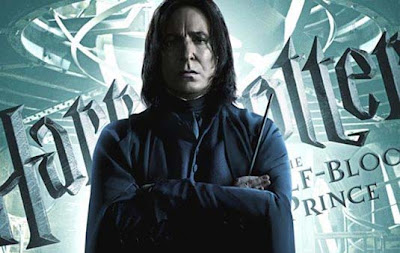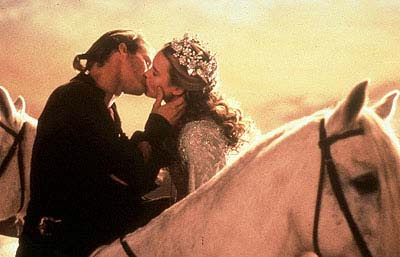Archive
Monthly Archives: July 2011
Monthly Archives: July 2011
Writing daily can help you lose weight.
No, I am totally serious.
I know it seems counter-intuitive, because, after all, you are sitting around on your buhunkus, and, if you are like me, tempted to eat snacks while you write.
But writing each day takes willpower. Learning to discipline yourself to write can have a positive impact on the rest of your life.
Willpower is like a muscle. This has a downside and an upside. The downside is that it can become exhausted, which means that you can find yourself more susceptible to temptation. The upside is that by exercising your will every day–for instance, by writing daily, if you a writer–you can improve not just your ability to write, but also strengthen you willpower in other areas, like dieting.
Heidi Halvorson, a researcher on willpower, writes:
So if you want to build more willpower, start by picking an activity (or avoiding one) that fits with your life and your goals – anything that requires you to override an impulse or desire again and again, and add this activity to your daily routine. It will be hard in the beginning, but it will get easier over time if you hang in there, because your capacity for self-control will grow.
She also suggests that you shouldn’t try to do two will-power intensive activities at the same time. For me, this means that I need to have healthy snacks on hand while I write, so that my urge to nosh’n’type won’t lead me to the cookie jar.
Heidi Grant Halvorson has a great book that combines the latest data from scientific studies with practical advice on how to make this work for you.
15. United Kingdom
Per capita alcohol consumption: 13.37 liters
Recorded consumption: 11.67 liters
Unrecorded consumption: 1.70 litersPer capita consumption by type (recorded) Beer: 4.93 liters
Wine: 3.53 liters
Spirits: 2.41 liters
Other: 0.67 liters
14. France
Per capita alcohol consumption: 13.66 liters
Recorded consumption: 13.30 liters
Unrecorded consumption: 0.36 litersPer capita consumption by type (recorded)
Beer: 2.31 liters
Wine: 8.14 liters
Spirits: 2.62 liters
Other: 0.17 liters
13. Ireland
Per capita alcohol consumption: 14.41 liters
Recorded consumption: 13.41
Unrecorded consumption: 1.00Per capita consumption by type (recorded)
Beer: 7.04 liters
Wine: 2.75 liters
Spirits: 2.51 liters
Other: 1.09 liters
12. Portugal
Per capita alcohol consumption: 14.55 liters
Recorded consumption: 14.55 liters
Unrecorded consumption: 2.10 litresPer capita consumption by type (recorded)
Beer: 3.75 liters
Wine: 6.65 liters
Spirits: 1.27 liters
Other: 0.51 liters
11. South Korea
Per capita alcohol consumption: 14.80 liters
Recorded consumption: 11.80 liters
Unrecorded consumption: 3.00 litersPer capita consumption by type (recorded)
Beer: 2.14 liters
Wine: 0.06 liters
Spirits: 9.57 liters
Other: 0.04 liters
10. Croatia
Per capita alcohol consumption: 15.11 liters
Recorded consumption: 12.61 liters
Unrecorded consumption: 2.50 litersPer capita consumption by type (recorded)
Beer: 4.66 liters
Wine: 5.80 liters
Spirits: 1.91 liters
Other: 0.14 liters
9. Belarus
Per capita alcohol consumption: 15.13 liters
Recorded consumption: 11.22
Unrecorded consumption: 3.91Per capita consumption by type (recorded)
Beer: 1.84 liters
Wine: 0.80 liters
Spirits: 4.08 liters
Other: 2.67 liters
8. Romania
Per capita alcohol consumption: 15.30 liters
Recorded consumption: 11.30 liters
Unrecorded consumption: 4.00 litersPer capita consumption by type (recorded)
Beer: 4.07 liters
Wine: 2.33 liters
Spirits: 4.14 liters
Other: 0.00 liters
7. Andorra
Per capita alcohol consumption: 15.48 liters
Recorded consumption: 14.08 liters
Unrecorded consumption: 1.40 litersPer capita consumption by type (recorded)
Beer: 3.93 liters
Wine: 5.69 liters
Spirits: 3.14 liters
Other: 0.00 liters
6. Estonia
Per capita alcohol consumption: 15.57 liters
Recorded consumption: 13.77 liters
Unrecorded consumption: 1.80 litersPer capita consumption by type (recorded)
Beer: 5.53 liters
Wine: 1.09 liters
Spirits: 9.19 liters
Other: 0.43 liters
5. Ukraine
Per capita alcohol consumption: 15.60 liters
Recorded consumption: 8.10 liters
Unrecorded consumption: 7.50 litersPer capita consumption by type (recorded)
Beer: 2.69 liters
Wine: 0.58 liters
Spirits: 5.21 liters
Other: 0.02 liters
4. Russia
Per capita alcohol consumption: 15.76 liters
Recorded consumption: 11.03 liters
Unrecorded consumption: 4.73 litersPer capita consumption by type (recorded)
Beer: 3.65 liters
Wine: 0.10 liters
Spirits: 6.88 liters
Other: 0.34 liters
3. Hungary
Per capita alcohol consumption: 16.27 liters
Recorded consumption: 12.27 liters
Unrecorded consumption: 4.00 litersPer capita consumption by type (recorded)
Beer: 4.42 liters
Wine: 4.94 liters
Spirits: 3.02 liters
Other: 0.14 liters
2. Czech Republic
Per capita alcohol consumption: 16.45 liters
Recorded consumption: 14.97 liters
Unrecorded consumption: 1.48 litersPer capita consumption by type (recorded)
Beer: 8.51 liters
Wine: 2.33 liters
Spirits: 3.59 liters
Other: 0.39 liters
1. Moldava
Per capita alcohol consumption: 18.22 liters
Recorded consumption: 8.22 liters
Unrecorded consumption: 10.00 litersPer capita consumption by type (recorded)
Beer: 4.57 liters
Wine: 4.67 liters
Spirits: 4.42 liters
Other: 0.00 liters
Courtesy of the Global Status Report on Alcohol and Health 2011
Rthan
On his return to the tribe, a new hut was built. Kinsmen in Sharkshead and others from his birth clanhold, folk who had heard he still lived and come to see if it was true, helped him with the building. Six sturdy rib bones from a whale provided the main support, around which was woven a skeleton dome of femurs and fibulae. Then layers and layers of skins rubbed in lard, fur side down, facing the interior, were stretched tight and lashed to the bones, so that when the hut was finished, it was slick and waterproof on the outside, soft and warm inside. Kinsmen thumped his back and insulted him affectionately, lighting the hearth fire as their last favor before they left him alone in his new house.
The Unfinished Song: Sacrifice (Book 3) is coming soon. Email me if you want to be alerted as soon as it’s out…the first day, it will be available for just $.99 on Amazon and free on Smashwords!
 |
| Princess Kate gets hitched. |
I love princesses. I should. A princess taught me to read. A princess convinced me to get married. And a princess made my dream come true.
But I met a guy once who hated princesses. He was a Spanish anarchist who would hold up protest signs whenever any Spanish royalty showed up. The problem, he complained at a dinner party attended by radicals, pacifists and intellectuals, was that just about everyone in Spain adored the Spanish royal family, and for good reason. The king of Spain had defied terrorists to defend democracy.
The anarchist didn’t care. “I hate the kings. But I especially hate the damn princesses.”
“I love princesses,” said the activist next to me. “I LOVE them!”
She and the gay guy on her other side then started talking Princess Fashion Tips.
The anarchist rolled his eyes. I wondered if he was right. Are we unhealthily obsessed with royalty?
 |
| Dany from Game of Thrones. |
Some examples:
• The Royal Wedding.
Need I say more? Just as Princess Diana was the idol of millions, Princess Kate is the new darling. Ok, I know she’s actually “Duchess Kate,” but she did marry a prince. And let’s face it, if she invited you to tea, you would totally be tweeting all your friends, “Check me out having tea with a princess!”
• Game of Thrones
. This is the most awesome new fantasy series on television, and it’s all about kings and princesses and warriors and barbarians vying for power.
• Harry Potter
. Wait a minute, you’re saying. There are no princesses in Harry Potter. That’s true. But there is a half-blood prince
. I rest my case.
 |
| Snape, I love you. |
Let’s face it, even when the word “princess” is not used, the role sneaks in. For instance, in my epic fantasy series The Unfinished Song, there are no kings or princesses. But there is a Vaedi: The one girl in all the world with the magic to fight Death. The hottie warrior who loves her is not called a prince. He’s just the biggest badass of all.
Is there something wrong with us for being so interested in royalty in the age of democracy? I don’t think so, because I believe our obsession about princesses isn’t really about princesses at all. It’s about fairytales. You might think fairytales exalt royalty, but they don’t. They exalt common heroes. The boy or girl who is plucky and compassionate and daring is the one who becomes the prince or princess at the end of the story.
The princess who taught me to read wasn’t born a princess. She didn’t even marry a prince. Her name was Sarah Crewe and you might know her. She was the heroine of A Little Princess, the 1905 children’s novel by Frances Hodgson Burnett
.
In second grade, when most of the kids around me were already reading primers, I couldn’t read three words. I had dyslexia and reading was just like torture for me. Then my grandmother began reading to me from A Little Princess every night. One chapter at a time. And suddenly the torture of needing to know what happened in the next chapter overpowered the challenge of reading. I don’t know how my brain made the leap. I just knew I couldn’t wait to find out what happened to Sarah Crewe and I raced ahead, finishing the rest of the book by myself in one day. It was “the Magic” just like in the story.
 |
| As you wish. |
I went from being unable to read at all to being a voracious reader. That’s how another princess came to unite me with my true love. When I met a man who took me to a bookstore for our second date, I knew I had found a prince. Flashforward half a year, and he bought me a copy of The Princess Bride. Inside, painstakingly fitted into the chapter entitled, “The Bride,” gleamed a diamond ring. That day I was amazed to discover that when he was saying, “Read this book,” what he meant was, “I love you.”
And even more amazing was that I realized I truly loved him back.
The princess who pushed me to follow my dream was Dindi. She’s not really a princess either, she’s just a girl who is plucky and compassionate and daring, who insisted that I write her story. Ten years of research, writing, re-writing, querying agents, and finally publishing went into achieving that dream. I went from being a kid who couldn’t learn to read to a fanatic reader to a published author. When I think about that, I feel so grateful to all my readers, the fans who write to tell me how much they love Dindi and Gwenika and Kavio, and to everyone who made it possible. Thank you all. You make feel like a princess.
The Unfinished Song: Initiate — Nook, Kindle UK, Kindle US, Paperback
The Unfinished Song: Taboo — Nook, Kindle UK, Kindle US
Look out for The Unfinished Song: Sacrifice, coming soon.
Rather than drone on about how edits on The Unfinished Song: Sacrifice are going (except to say they are indeed ongoing), I thought I’d let you have a peak at my next project-in-progress. This is going to be a military hard sf series called STRAT.
On a hell world where feudal mech lords use memetic tech to imprint loyalty onto their vassals and thralls, all Charlie and his people ask is to be left alone, free to think for themselves.Then, on his wedding day, Charlie’s bride is kidnapped to be a thrall. As he fights for his life and her freedom, he discovers the war helm of an ancient and powerful lord. He needs the knowledge in the helm to bring the battle to his enemies. But if he uses it, he risks losing himself…
I’m going to release it in novella-lenth episodes of about 25,000-35,000 words each. Charlie is gonna fight in a lot of wars, and each episode will cover one war. I’ll start with a trilogy and may expand from there.